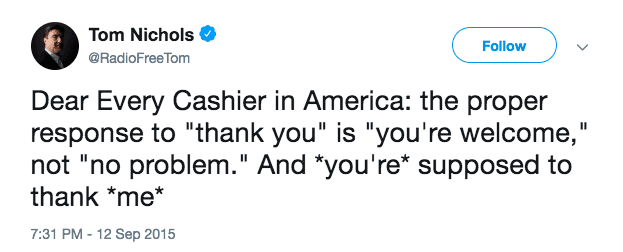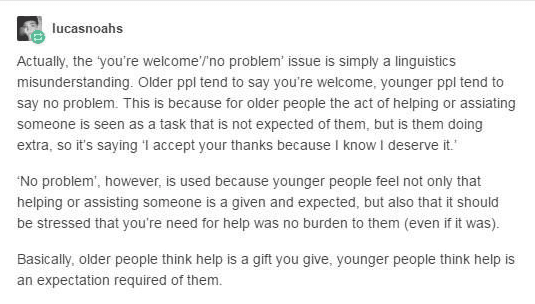Millennials take a lot of heat from older people for the way they do things. In many cases, it stems from the older generation wanting the younger one to do things their way. But things change, and it’s not always bad – like how the youth respond to “thank you”.
Professor Tom Nichols branded himself the quintessential grumpy old man back in 2015 when he tweeted this angry response to what he perceived as a rash of poor customer service.

Image Credit: Twitter
“Dear Every Cashier in America: the proper response to ‘thank you’ is ‘you’re welcome,’ not ‘no problem.’ And *you’re* suppose to thank *me*”
He received a number of responses, the vast majority mocking his attitude, but it one person’s detailed and thoughtful reply makes a lot of sense.
Bottom line? It’s not about being polite, it’s that our views on gratitude are evolving.

Image Credit: Imgur
“Actually, the “you’re welcome/no problem” issue is simply a linguistics misunderstanding. Older ppl tend to say “you’re welcome,” younger ppl tend to say “no problem.” This is because for older people the act of helping or assisting someone is seen as a task that is not expected of them, but is them doing extra, so it’s them saying, ‘I accept your thanks because I know I deserve it.”
“No problem, however, is used because younger people feel not only that helping or assisting someone is a given and expected but also that it should be stressed that your need for help was no burden to them (even if it was).”

Image Credit: Pixabay
“Basically, older people think help is a gift you give, younger people think help is a requirement.”
The post Here’s Why Young People Prefer Saying “No Problem” Instead of “You’re Welcome” appeared first on UberFacts.

